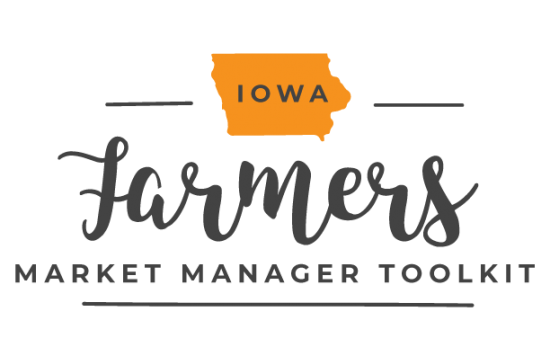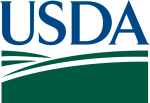Iowa’s farmers market managers range from volunteer coordinators to full-time managers with supporting staff, seasonal to year-round. The job descriptions vary depending on the market structure, budget, community and volunteer support, and customer base. Iowa’s smallest farmers markets might have only three or four vendors, while it’s largest—the Des Moines Downtown Farmers Market—hosts 250. But no matter the structure or size, you can be sure that the manager is passionate about how the farmers market can strengthen the local economy, improve access to fresh local produce, connect people to each other and their food system, offer space for entrepreneurs and small businesses to grow, and cultivate an appreciation for the growing and making of things right here in the Midwest.
There are a variety of market manager manuals and handbooks published at a state and local level across the nation. They are valuable resources no matter what state a manager resides in. With the ease of online searching, these manuals can benefit managers at all skill levels. For this Iowa handbook, the project team combined broad best practices with ideas and encouragement from real Iowa farmers market managers. This place-based approach offers potential market managers and existing market managers in Iowa an opportunity to connect with colleagues from similarly sized towns, provide their boards or committees with justification and inspiration, and fuel grant applications and private sponsorships.
This handbook is meant to complement the existing booklet published by the Iowa Department of Agriculture and Land Stewardship and resources provided by the Iowa Farmers Market Association.
Click here to download a for a low resolution Iowa Farmers Market Manager Handbook
or here for a high resolution Iowa Farmers Market Manager Handbook





